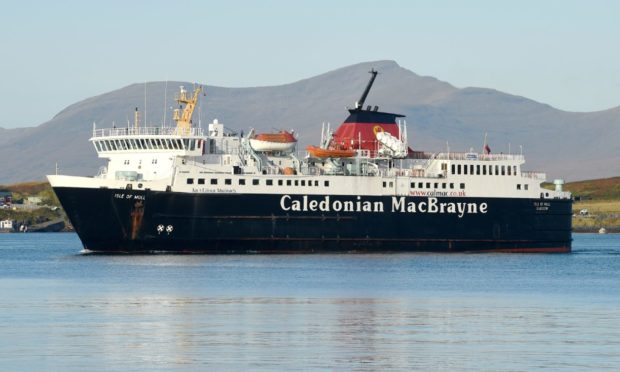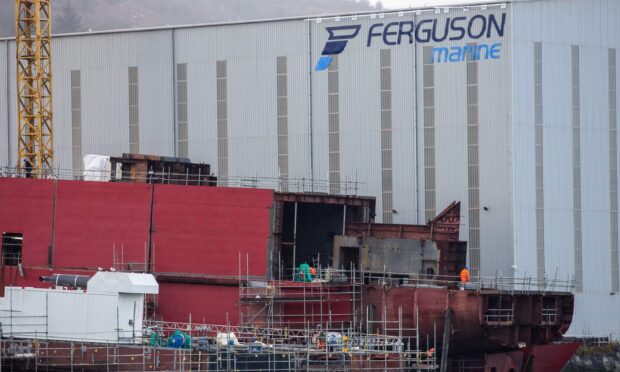Ferry operator CalMac has been paying out more than £50,000 a month to frustrated customers after a four-fold increase in its compensation bill.
Taxpayers were left to pick up the bill for a recent spate of “chaos, cancellations and delays” on west coast services to and from the islands.
Problems on the network led to claims islanders are being forced to pack-up and leave fragile communities because lifeline transport links are unreliable.
Difficulties with an ageing fleet have been compounded by delays to two ferries under construction at the Ferguson shipyard.
The vessels are five years late and significantly over-budget.
However, inability to sail in bad weather was listed as the main reason for cancellations.
Data obtained by Scottish Labour shows that in 2018-19, the year in which the two ferries were scheduled for delivery, a total of £159,000 was paid out to CalMac customers for disruptions.
This worked out at an average of £13,250 a month.
CalMac has already paid out £215,000 in the first four months of 2022-23 alone, an average of £53,000 per month.
Rhoda Grant, Labour MSP for the Highlands and Islands, said: “These spiralling costs expose what a mess the SNP have made of lifeline ferry services in Scotland.
‘Left to rust’
“Our ferry fleet has been left to rust because of years of failed planning, as well as the ferry fiasco where the Scottish Government have failed to deliver two new ferries.
“Now islanders are stuck with chaos, cancellations and delays while taxpayers foot the bill.”
Government agency Transport Scotland announced in October that two new ferries would be ordered to help relieve pressures on services run by CalMac, which is publicly-owned.
A spokesman for the agency said the vast majority of cancelled sailings related to weather.
Weather impact
“In January and February 2022 alone, 92.75% of cancellations were due to either weather or Covid-19,” he said.
“The facts show that in 2022, of the 171,403 scheduled sailings across the CHFS network, 6.6% were cancelled, and of these, 1% were cancelled due to technical issues.
“It is clearly a decision for a ship’s master as to whether or not a vessel should sail and it would not be appropriate to question that professional judgement – which is made on safety grounds.
“It’s important those with expertise are given the respect to do so.”



Conversation